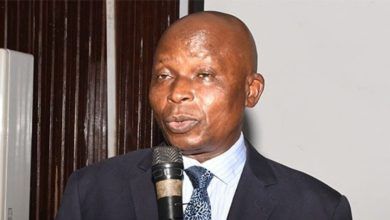
The Supreme Court has dismissed suits challenging the establishment and prosecutorial powers of the Economic and Financial Crimes Commission (EFCC), the Nigerian Financial Intelligence Unit (NFIU) and the Independent Corrupt Practices Commission (ICPC).
The apex court described the suit as “selfish,” supporting not only the establishment of the anti-graft agencies but also their powers to investigate and prosecute financial crimes across the federation.
A seven-member panel of the apex court, led by Justice Uwani Abba-Aji, passed the judgment on Friday in cases filed by the Attorneys General of Kogi State and others against the Attorney General of the Federation.
The EFCC was established by an Act of the National Assembly on December 12, 2002; however, the act was repealed and reenacted by lawmakers in 2004 and was signed into law.
BACKGROUND
The suit challenging the legality of the EFCC was initially filed by the Kogi state government. Subsequently, 15 states applied to join Kogi in the suit.
The states argued that the national assembly failed to adhere to Section 12 of the 1999 Constitution (as amended), which governs the incorporation of international treaties into domestic law, in the enactment of the EFCC Act.
They further maintained that domesticating a convention requires the approval of a majority of the state houses of assembly based on the provisions of Section 12 of the constitution.
They added that the procedure for domesticating the convention was bypassed in the process of passing the EFCC Act and similar laws.
They posited that the EFCC Act cannot be applied to states that did not consent.
The applicants had also challenged the powers of the Nigerian Financial Intelligence Unit (NFIU) and the Independent Corrupt Practices Commission (ICPC).
They sought a declaration that the “federal government, through the NFIU, lacked the power to issue any directive, guideline, advisory, or any instrument howsoever called for the administration and management of funds belonging to the state”.
They also sought a declaration that the “EFCC, NFIU, or any agency of the federal government cannot investigate, requisition documents, invite, or arrest anyone for offences arising from or touching on the administration and management of funds belonging to the state”.
In the days that followed, six states, Adamawa, Ebonyi, Anambra, Jigawa, Benue and Enugu withdrew from the suit.





